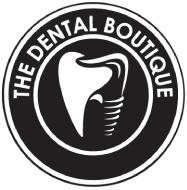About Us
Our Services
For Patients
Office Hours
- Mon - Thu
- -
- Friday
- -
- Sat - Sun
- Closed
ORAL SURGERY
oral surgeon in south miami
Oral surgery is an important part of dentistry. It involves a wide range of procedures, such as extractions, bone grafting, jaw surgery and more. During these procedures, an oral surgeon must carefully evaluate the health of the patient’s jawbone and surrounding tissue to ensure that the procedure is safe and successful. If you have significant dental issues and are looking to improve the health and beauty of your smile, schedule a consultation to see if an oral surgery procedure is right for you. In the meantime, learn about the oral surgery procedures we can perform at The Dental Boutique.
Request an Appointment
For more information or to request an appointment, call us at 305-665-4448 or complete the form.
Request an Appointment
Anesthesia
Anesthesia is an important tool for providing comfort and safety during many dental treatments. A local anesthetic can be used to numb pain in specific areas for smaller procedures such as fillings or other surgeries. For more complex surgeries, general anesthesia may be used to put the patient into a deep sleep for the duration of their appointment, ensuring that they don't experience any pain or discomfort during the procedure. Regardless of which form is used, anesthesia provides a safe and comfortable environment for dental treatments.
Bone Grafting
Bone grafting is a type of dental procedure used to repair damaged or missing bone. By using donor tissue, dentists can rebuild and strengthen weak or deteriorated jawbones. This process can be extremely beneficial for patients who have experienced trauma to their jaws, or for those who have lost teeth due to periodontal disease. Bone grafting can also be used to prepare a jawbone for implant surgery, providing a stronger foundation and improved results overall.
Crown Lengthening
Crown lengthening is a procedure in dentistry that can improve the appearance of a person's smile. It involves reshaping or removing gum tissue, bone, or both to expose more of the natural tooth. This reduces the amount of gum visible when smiling and creates a longer-looking tooth. Crown lengthening can be used for both aesthetic and functional reasons, and to help protect teeth from further decay or damage. Discover whether crown lengthening could be the solution to your dental goals.
Ridge Augmentation
Ridge augmentation is an important dental procedure that takes place when there has been a loss of alveolar or jawbone structure due to tooth extractions, periodontal disease, or trauma. The purpose of ridge augmentation is to restore the lost bone and gum tissue in order to recreate the natural contour of your gums and jawbone, as well as provide a more aesthetically pleasing smile. Oftentimes, ridge augmentation is used in conjunction with other procedures as part of a comprehensive treatment plan.
Root Canal Therapy
Root canal therapy is a common dental procedure that involves removing the infected or damaged pulp tissue inside a tooth. The aim of root canal treatment is to save the affected tooth and prevent further damage, so you can keep your smile healthy and beautiful, and also to relieve the pain that comes along with an infected tooth. With proper care and maintenance, a root canal treated tooth can last a lifetime! If you think you may need root canal treatment, contact us for an appointment.
TOOTH DECAY TREATMENT
Tooth decay is a serious issue that can affect your oral health, and if left untreated it can result in pain, infection, and the loss of teeth. That’s why it’s important to identify tooth decay early and get the necessary treatment promptly. Treatment for tooth decay often depends on how extensive it is, but generally includes a filling, crown, or root canal. Our experienced team can help determine the best course of action for your tooth decay treatment.

